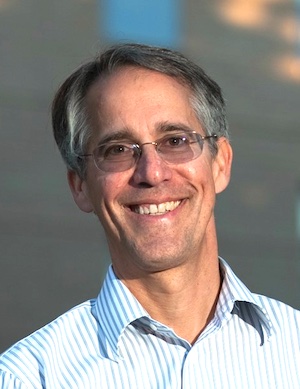By Dee Richards
During the 2014-2015 academic year, Phi Beta Kappa’s Visiting Scholar Program hosted 13 of America’s top scholars with specializations ranging from economics to chemistry and from history to information science. Now, a decade later, they are still making news. Among the notable speakers was Jeffrey Wasserstrom, Chancellor’s Professor of History at the University of California, Irvine, and author of six books, including Vigil: Hong Kong on the Brink (2020) and China in the 21st Century: What Everyone Needs to Know (3rd ed., 2018). He is also the editor of several others, including The Oxford Illustrated History of Modern China (2016). The recent Wall Street Journal publication of his article “Why the U.S.-China Relationship Isn’t as Predictable as It Sometimes Seems” prompted a returning interest in this distinguished scholar.
When Wasserstrom served as a ΦBK Visiting Scholar, the program placed him on campuses around the country to deliver public lectures, serve as a guest speaker in select classes, and engage in discussions with local students and faculty. Wasserstrom described his time with the program as a “wonderful experience” encompassing “a year of stimulating conversations during which I met fascinating people.” Wasserstrom’s fond memories are bolstered with pride for his daughter, Gina Leigh Bock, who became a ΦBK member at Pomona College. Considering Wasserstrom’s ties to ΦBK, The Key Reporter wanted to touch base with this important alumnus of the Society’s remarkable lecture series and revisit some of the ideas covered during his time in the program.
In 2015, Wasserstrom lectured at Birmingham-Southern College on “Making Sense of a Fast-Changing China: A Cultural Historian’s Perspective” in connection with the publication of his book, China in the 21st Century. He expanded on this topic for Phi Beta Kappa in a recent conversation. To start, Wasserstrom commented on what a historical comparison does in terms of interpreting current events in China and the world. “History never repeats itself,” Wasserstrom said. “Things happen that are like things that happened before but with variations. We can learn a lot from examining these almost-repetitions. Knowing about the past more generally helps us think about potential futures and be sensitive to patterns to watch for.” It can be difficult to manage rapid cultural change, but utilizing the past as reference material in interpreting current events can help. However, he pointed out “how surprising developments can alter equations,” he said, and can make very “specific predictions about complex issues in geopolitics” seem foolish. A wide-ranging consideration of multi-faceted subjects can only benefit those seeking to interpret complicated current events.
Wasserstrom’s ΦBK lectures and recent Wall Street Journal article touched on history, politics, the economy, and more. What insights does he have to share regarding our contemporary moment, particularly concerning the the interplay of varying perspectives and expertise among ΦBK members? Wasserstrom emphasized the importance of considering the “narratives that governments promote, that protesters articulate in their slogans, and that individuals tell one another in living rooms and around dinner tables,” he said, placing particular emphasis on how these narratives “help shape the course of history, just as the rise and fall of interest rates and production figures do.”
There is “no magic formula for being a good global citizen in this challenging era,” when it is “hard to know what sources to trust,” Wasserstrom said. He suggested three possible guiding principles for ΦBK members and all critical thinkers: 1) “It is important to resist the temptation of thinking that the populations of other countries are more homogeneous than one’s own.” 2) “It’s good to try to figure out how the same story is being covered in multiple news organizations.” 3) “It’s good to be skeptical of any claim that there are only two ways to view a given situation, as there are bound to be more approaches worth considering.”
These suggestions are a salient lesson from a remarkable past ΦBK Visiting Scholar, parent of a current member, and a leading mind in understanding history and cultural relations.
Dee Richards is a cum laude graduate of University of California, Irvine holding a B.A. in English, with a creative writing focus. Richards received the honor of induction by UC Irvine’s Mu of California chapter in June 2023, a distinction only offered to the top five percent of graduating seniors there. Richards has won three awards in creative non-fiction and has received eight anthology publications to date.




